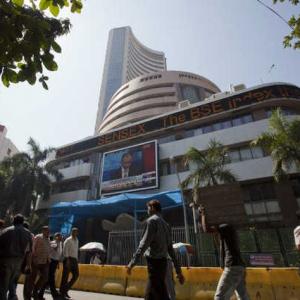Since January, about 250 stocks — eight per cent of the total stocks listed on BSE — have returned about 50 per cent.
 Of these, about 100 stocks have returned about 100 per cent, the highest number of such stocks in the past three years.
Of these, about 100 stocks have returned about 100 per cent, the highest number of such stocks in the past three years.
In the corresponding periods of 2012 and 2013, there were only 64 and 16, respectively.
Some stocks such as Eco Friendly Food and Processing, Esteem Bio Organic and Spectacle Ventures are up 300-400 per cent.
The returns are inviting. But should you go for these? Market experts are quick to caution retail investors against this, as only a handful of these stocks — Amtek Auto, Financial Technologies, Monsanto and HCL Infosystems — are known names.
Says the head of a brokerage, “Investors should be careful because these stocks are cornered by high net worth individuals and traders simply for trading purposes.”
Financial planner Amar Pandit says, “From a retail investor’s perspective, more than the return, you should be aware of the risk. Unless you understand the business or have enough background about the company, it is a risky venture.”
He warns since the liquidity of these stocks is quite low, sometimes only 10,000 or 20,000 stocks are needed to bring the price crashing down.
Pandit says sometimes, clients approach him for recommendations on such stocks. “In such cases, we mostly dissuade them. But if they insist, we ask them to buy a very small portion. But it is a client’s recommendation, we do not advise buying these.”
Why do some of these unknown names see such surge?
According to brokerage chiefs, many of these are used to earn high tax-free returns and see a sharp run-up during the end of a financial year. For instance, at the beginning of a financial year, say, April 1, 2013, a trader buys 10 million shares of a company for just Rs 1 crore. In a year, the share price is increased manifold by traders.
On April 2, 2014, when the share price is, say, Rs 100, the trader offloads his stake for Rs 100 crore ( Rs 1 billion). This way, he earns Rs 99 crore (Rs 990 million) of tax-free income, as there is no long-term capital gains tax after a year.
Most of these companies are really small; one company, for instance, has a net worth of just Rs 25 crore (Rs 250 million), while its current market capitalisation is Rs 750 crore (Rs 7.50 billion). Consequently, metrics such as price-to-earning, earning per share, etc, are irrelevant.
With the Sensex hitting 22,000, retail investors are likely to be showered with tips about ‘the next hot stock’. Also, some brokerages will send messages to investors about unknown names and target prices, while friends, colleagues, etc, will suddenly turn market experts.
But following such advice could mostly be harmful. “Even if you want to take some risk with your portfolio, it doesn’t make sense getting into stocks about which you or your investment advisor knows nothing about,” says the chief executive of a wealth management company.
The brokerage head quoted earlier said the Securities and Exchange Board of India should look into stocks that behaved unnaturally, as investors could easily be carried away by these and lose significant amounts of money.










